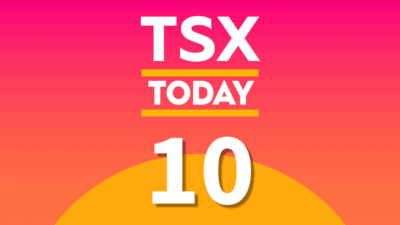It seems that every other day, there’s a story about the Canadian “grocery wars”. As the narrative goes, increasing competition from American companies like Walmart is squeezing the margins of the companies that sell us food.
While there is some truth to that story, the industry is still a very attractive one. A limited number of grocery retailers means that prices will not spiral downward. Walmart is not as dominant here as it is in the United States, and the established grocery stores still have access to the best locations, making it difficult for new competitors to steal share. As a result, Canada’s grocery stores have been able to generate consistent earnings and pay reliable dividends.
So with that in mind, which one belongs in your portfolio? Below we take a look at the main candidates.
1. Loblaw
Loblaw Companies (TSX: L) is Canada’s largest grocer, a lead that has only increased with its recent acquisition of Shoppers Drug Mart. Besides its market position, Loblaw has numerous other assets that could pay big dividends for investors over time. This includes PC Financial, its own real estate investment trust, and the brands and loyalty program from Shoppers.
There’s one thing that investors should watch out for with Loblaw, though. It is currently implementing a new SAP software system, and these implementations are always messier than predicted.
Loblaw is still trading at a very reasonable price for a company with this market position and earnings power. It’s worth serious consideration for your portfolio.
2. Empire
Like Loblaw, Empire Companies (TSX: EMP.A) has been helping consolidate the industry, with its recent purchase of Safeway’s Canadian stores. Unlike Loblaw, Empire has had a much smoother ride — over the past 15 years, adjusted net earnings per share grew every year except one, averaging 15% growth per annum.
Empire’s shares have fallen on hard times recently, and are down more than 20% since September. Now the shares trade at barely 10 times forward earnings. This may be a perfect opportunity to scoop up the shares at a discount.
3. Metro
Metro (TSX: MRU) is Canada’s third-largest grocer, a position that many people say is dangerous. Without the scale of the top two, it doesn’t have as much bargaining power with suppliers, which could seriously squeeze its margins.
But Metro is still a very well-run company. In each of the past 20 years, Metro has earned a return on equity of at least 14% and raised its dividend, too; also, its shares trade at only about 12 times forward earnings.







